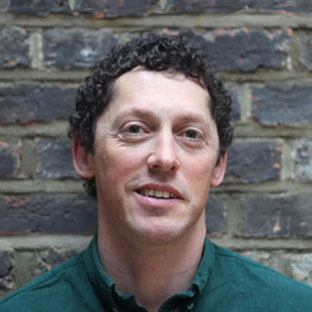I spent yesterday afternoon at the Open East Festival in the new Queen Elizabeth Park. After the joyful but somewhat oversanitised experience of being in the park during last year's Games, the slightly shambolic nature of the festival was reassuring. The wildflowers, the best surprise of last year's visit, were less than unkempt, and barely flowering. The McDonalds had disappeared, as had the Gamesmakers. Turnout was probably lower than organisers had hoped, but the Hackney Colliery Band made the £10 entrance fee worthwhile.
Looking from the highest point of the park (a grassy mound where one of the big screens used to be), I finally got my head around the scale of the whole "village", which mostly lies empty, and understood the task of reclaiming every square metre for use, whether public or private. Squeezed into a corner of the massive 2012 site, Open East served as an ironic reminder that the new Park is not mine, nor anyone else's, and won't be for many years. It's worth comparing these two maps to show how little of the park will open to the public this year.
In terms of thinking about the legacy from the 2012 Olympics and Paralympic Games, I'll declare an interest as a local resident, and also having worked on the 2012 Get Set education programme last year. I did sign a non-disclosure agreement with LOCOG, but LOCOG has now been liquidated, and anyway my experience working there was entirely positive. Get Set was a brilliantly conceived and executed programme which, though careful not to overclaim, genuinely connected with thousands of schools, a few to the point of deep obsession. Working for LOCOG was, to my dismay, nothing like the sitcom 2012. The company was efficient, often generous if occasionally ruthless, and more focused and clear on its mission than anywhere I had ever worked. Unmovable deadlines do that, I guess.
One year on, it's time for a sensible conversation about legacy. It's not worth questioning whether the money was well spent (although my instinct is that the event could have been just as successful for half the estimated £12bn cost). However, last week's 'one year on' coverage has been anything but sensible. The recent government report on the economic impact of the games seemed like Enron-style accounting, based on tangential evidence and uncertain future predictions. The Cultural Olympiad's evaluation report is an equally dodgy advocacy-based evaluation. Seb Coe's claim in a TV interview this weekend that the Games' main achievement so far has been to enable us Brits to 'think differently about ourselves and our nation' was, unusually for him, a fuzzy and flabby response.
London 2012's aim to 'inspire a generation' falls at the first conceptual hurdle. Which generation? To do what? Overall, legacy is such a tricky, slippery concept, I'd suggest that we boil it down to two long term outcomes, one national, the other local.
Nationally, let's worry about sports participation, especially for those who currently do next to nothing on a regular basis that gets them out of breath. Sport England's active people survey, in contrast to the frothy legacy-speak which surrounds this issue, is a breath of empirical fresh air. This showed a decline in sports participation since 2012.
Locally, let's focus on regeneration, and whether the park and village deliver long term social and economic benefits, especially in the form of jobs, for low income residents in the most fragile parts of East London. Over the long term, this is measurable, even if causation and correlation can never be entirely disentangled.
The rest is noise; nonsense noise that should be confined to the cutting room floor of the next series of 2012. Surely there's plans for a one off 'legacy special' episode?
Joe Hallgarten, Director of Education @joehallg



Join the discussion
Comments
Please login to post a comment or reply
Don't have an account? Click here to register.
Interesting read, thanks Joe. I agree we need a sensible discussion about the legacy. The reports that are coming out seem to flood us with information about what was achieved and the initiatives that are currently underway. The real legacy will be more subtle and embedded than this, and require some tracking. For example how we unlock potential of (albeit smaller) other events across the UK for local communities or how we encourage more people to move from exciting high status event volunteering into long term community action. Hopefully we will see an uplift in sports participation and new routes into sport. It will take time to measure the impact but the Games presents us with a real opportunity. We need to plan and set a benchmark now, then seek to see what is working and what is not.